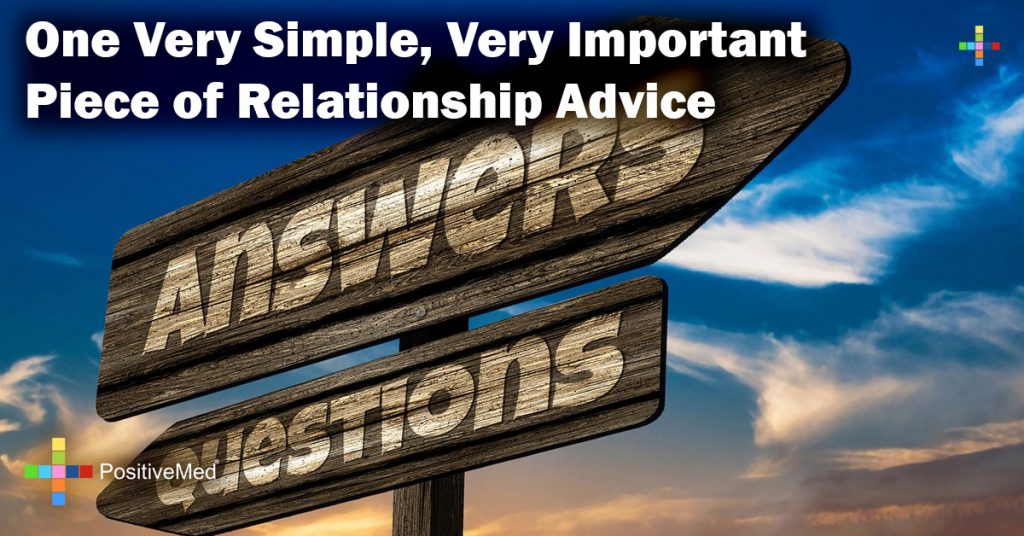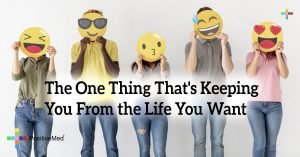
If you’ve grown up in the last three decades, like me, you’ve been part of the “relationship advice generation”. We’re swamped – right, left, and center – with the newest tips and tricks on making our relationships work.
When it comes to love advice, we’re drowning in the constant influx of bite-sized information. Say this, don’t say that. Do this, don’t do that. Wear this, but only on certain nights, and for God’s sake don’t wear this, do that, and say the wrong thing.

Maybe it’s not such a surprise, then, that divorce rates are through the roof. Maybe we’re all clueless and miserable about how to build healthy relationships.
When we’re surrounded by evidence of how complicated something is, we miss the obvious answer to our troubles.
Underneath the mountains of expert advice, there’s one piece of relationship advice that can really make a profound difference in how we relate to one another.

It’s not compatibility, commitment, or communication. Of course, those are important, but they all depend on our, first, mastering something else.
Just one simple thing.
That one thing was summarized so perfectly by my partner the other night that I just have to share his exact words with you.
He said:
“All you have to do is remember that you’re a human being, just like the person you’re with.”
This is sort of like the old cliché that to love anyone, you must first love yourself. To understand anyone, you must first understand yourself.
The key to a healthy relationship is a healthy sense of self-awareness.
Remember the last time you were upset with someone you’re in a relationship with? What were you thinking in your mind? What exact thoughts were going through your head?
Were they some version of:
I would never do this to you (but you always do it to me)
I always do this for you (and you never do it for me)
Or, perhaps, the question version:
How can you do this to me?
Why can’t you just do ____ for me as I do for you?
This is the great divide. This is the gaping canyon between people who are in a fight as well as between people who are indifferent to each other.
The space between you and another person is equal to the space between you and some part of yourself.
Let’s say you just found out your partner lied to you about doing something that you’ve made it clear, many times, you don’t like him/her doing. For the sake of example, let’s say your partner went out drinking alcohol. You don’t drink. You don’t want your partner to drink.
Here is an example of a thought process you may have:
How could you do this when I don’t want you to? I change myself for you. I always change what you ask me to.
and/or
If you don’t stop doing this, that means you don’t love me. I always stop doing what you don’t like me doing.
and/or
Why can’t you just stop drinking? I did.
…and so on.
In all of these thoughts, you are different from your partner. You make sacrifices, he doesn’t. You love her, she doesn’t love you. You’re capable of doing things and he isn’t.
In the end, this thought process only alienates people and drives them apart. Treating someone like this, even someone who’s doing something really undesirable, only makes their behavior worse.
A better question to ask is: When have I been driven to continue doing something that someone didn’t want me to do? Especially someone I love? When have I been driven to lie about it?
As you ask yourself those questions, without doubt, examples pop up – examples of your own mistakes, failures, and imperfections. Those feel bad. Maybe those are things you’d like to sweep under the carpet.
Those are also things that make you human. Just like your partner.
Next time you find yourself upset at someone for something they’re doing, try closing the void between you by getting on the same side, by searching for the answers within yourself.
Here’s what that might look like:
Go from: “How could you do this to me? I would never do this to you.” to “How have I done similar things to you in the past? How does being upset at you help me understand how you feel when you’re upset at me?”
Change “I want you to do this. Why can’t you just do this?” to “How do I feel when I’m given orders? How would I feel in your place with someone telling me what to do? How could someone help me to change without alienating me when I feel just like you do?”
Of course, the specific wording will be different for each situation, but the motion will be the same. It is a connecting, uniting motion instead of a pushing away, separating motion.
The key to healthy relationships is understanding that: Everything you reject in your partner represents a part of yourself you are also rejecting.
Here, we come to an interesting moral. Every time you are having relationship problems, it is really you having self-acceptance problems.
Each conflict is an opportunity for you to learn about yourself.
The key to healthy relationships is self-acceptance. To love and understand someone, love and understand yourself.
Of course, sometimes, what you’re not accepting in yourself is your genuine, authentic desire to have a loving, compatible partner. In this case, the process still helps. By seeing your current partner through the eyes of self-awareness and compassion, you can be honest about whether your partner is the right one for you or not.
When you look with eyes of love and awareness at someone, even if they’re not right for you, then you begin to see their truth and how that truth corresponds to yours.
Then, you can allow both of you to seek happiness and fulfillment elsewhere effortlessly.
Self-awareness ensures that we act from love, not from need. Awareness helps us see the big picture and put ourselves in each others’ shoes so that we can truly understand, truly communicate, and craft the sorts of relationships we can be proud of.
Thank you for reading! Please share, comment, and keep reading…
 About the Author (Author Biography)
About the Author (Author Biography)
Vironika Tugaleva is an inspirational speaker, self-love and healing coach, founder of The Real Us, and author of the award-winning bestseller The Love Mindset. Vironika helps people cultivate self-love, heal mental and emotional suffering, develop healthy self-care habits, build deeper relationships with others, and unleash their inner potential to change the world. You’re invited to read more about Vironika and get a free sneak preview of The Love Mindset.





